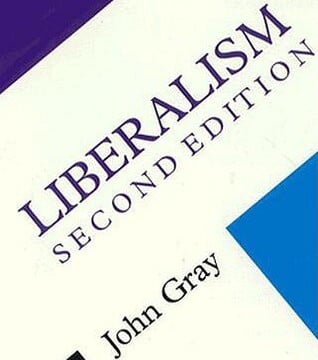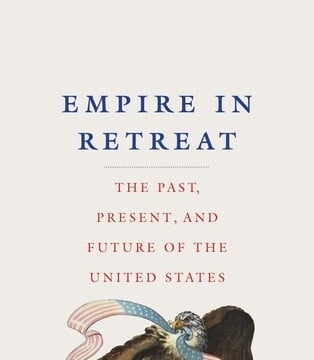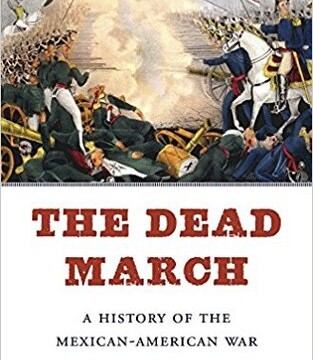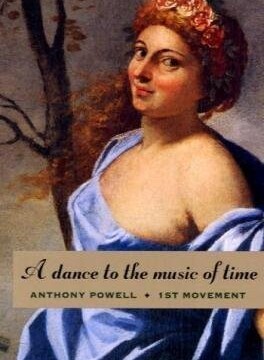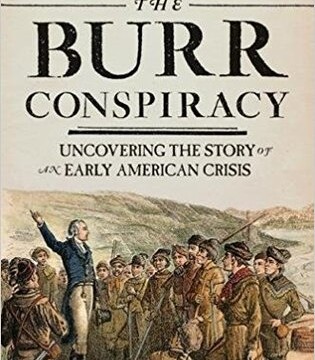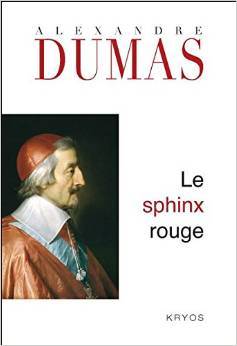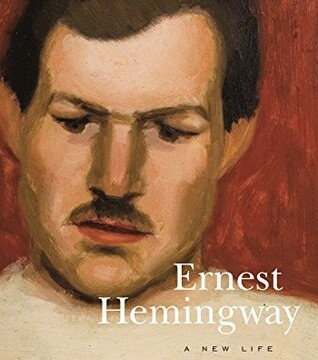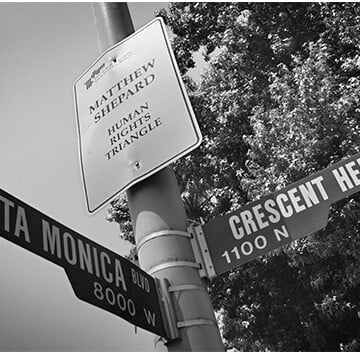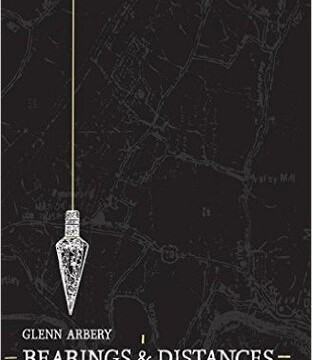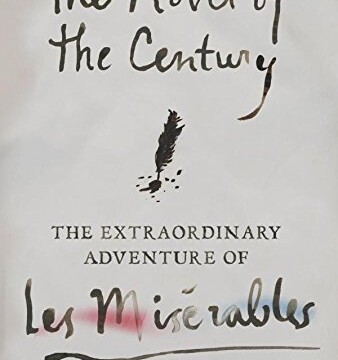Field of Blood is one of the best new novels I have read in many a year, a superbly written book by a Russian scholar and analyst who is also a careful artist, a stylist, and a poet in prose and in form who has accomplished what few essayists and nonfiction authors ever succeed at:...
Author: Chilton Williamson (Chilton Williamson)
Books in Brief
Theodore Roosevelt: A Literary Life, by Thomas Bailey and Katherine Joslin (Lebanon, NH: ForeEdge; 368 pp., $35.00). Theodore Roosevelt always considered himself a man of letters, and indeed he was one. He began reading widely and writing at an early age, and a day never seems to have passed when he did not read and...
What the Editors Are Reading
Ross Douthat, who converted to Catholicism as a teenager, performed a great service to the Church when he wrote To Change the Church, his assessment of Pope Francis’s pontificate thus far. Despite his many criticisms of Francis, Douthat avoids anger and bitterness, giving the Pope the benefit of every doubt and freely acknowledging that the...
Immigration and the GOP (Again!)
The Republican candidate for President of the United States in 2016 made major immigration restriction the broadest and thickest plank in his platform. That candidate went on to defeat 16 other GOP candidates, all of them to a greater or lesser degree pro-immigration. (The difference in degree largely corresponded with the candidate’s honesty, or dishonesty,...
Darwinian Liberalism
A brief article in The Spectator (May 19) by Fredrik Erixon speculates that President Emmanuel Macron of France, generally considered a liberal centrist énarque, seems to be reconsidering his position following the anniversary of his first year in office. Faced with the continuing rise of the right in Europe, the rebellion of Chancellor Merkel’s conservatives...
Passing Up Chances
The frequency with which American politicians—and Republican ones in particular—habitually neglect or pass up obvious chances to score a telling hit on their opponents is really amazing. An immediately recent example is the claim made on the campaign trail by Andrés Manuel López Obrador, the leading candidate for the Mexican presidency in the forthcoming election...
Habitual Dishonesty
Cleverly and with their habitual dishonesty, liberals this spring have managed to turn the issue of mass immigration into issues of mass refugee and asylum seeking, thus altering the terms of debate entirely. Having failed to persuade the country that anyone who wants to immigrate to the United States should be allowed to do so,...
One Nation Divided
Since 1892, when the original text was composed, the Pledge of Allegiance has been revised three times. Viewed chronologically, the alterations appear to have aimed at a greater specificity, but also a wider and deeper self-assurance. The current text, dating from 1954, capitalizes “Nation” and adds “under God,” as if the editors (a committee, no...
What the Editors Are Reading
I discovered only by accident a week ago a little book called Liberalism, by the English philosopher John Gray, published originally in 1986 and in its second edition in 1995. For many reasons, I wish I’d known of it earlier, as I’m finding it useful in my continuing pursuit of liberalism—and of the nastier and...
Books in Brief
Empire in Retreat: The Past, Present, and Future of the United States, by Victor Bulmer-Thomas (New Haven: Yale University Press; 480 pp., $32.50). This excellent and timely book is of great interest as informed speculation on the future of the United States; at a secondary level, it is a meditation on empire in history. Bulmer-Thomas,...
Going in the Wrong Direction
Of the more than 1,000 migrants from Central America who set out in “caravan” to traverse the length of Mexico to seek asylum in the United States, a couple of hundred arrived at Tijuana on the American border. As of this writing, only ten remain on the Mexican side of the line, the rest having...
Books in Brief
The Legitimacy of the Human, by Rémi Brague, translated and with an Introduction by Paul Seaton (South Bend, IN: St. Augustine’s Press; 176 pp., $26.00). Rémi Brague, the French Catholic historian and political philosopher, made his wider reputation in the early 1990’s with his book Europe, la voie romaine (in English translation, Eccentric Culture: A...
What the Editors Are Reading
I have been reading through, here and there at odd moments as I find the time, the Fall/Winter number of The Chesterton Review, generously sent me by Fr. Ian Boyd, C.S.B., the journal’s editor, and designated its Special Journalism Issue. Chesterton always insisted that he was no more, and no less, than a “jolly journalist,”...
The Logic of Liberalism
Writing in this issue of Chronicles, Frank Brownlow, the scholar and literary critic, quotes W.H. Auden as having described logic as “a condition of the world,” like aesthetics and ethics. Auden was right, which makes advanced liberalism’s rejection of logic so dangerous. Five nights a week on FOX News, week after week, Tucker Carlson in...
All Against Russia
On any subject other than Russia, unanimity between the United States and her European “allies” has been impossible to achieve since Donald Trump was sworn in as President. The unsolved poisoning in the cathedral town of Salisbury, England, of a former Russian double agent—exchanged eight years ago in a spy-swap with the U.K.—and his daughter,...
The Lesson From Pennsylvania
It’s likely that psephologists will discover from their postmortems on the recent primary election in Pennsylvania’s 18th Congressional District that the barely victorious candidate, Conor Lamb, won by appealing to the “nice” Republican portion of this overwhelmingly Republican district. Nice Republicans are not necessarily the equivalent of the Republicans in Name Only despised by the...
What the Editors Are Reading
Not a find, but an old friend, is Malcolm Muggeridge. I am reading a collection of his essays called Time and Eternity, and his golden spiritual autobiography, Confessions of a Twentieth-Century Pilgrim, written after he and his wife, past their four-score years, had been received into the Catholic Church. I cannot read the latter without...
Books in Brief
America’s Political Inventors: The Lost Art of Legislation, by George W. Liebmann (New York: I.B. Tauris; 272 pp., £64.00). George Liebmann, an attorney and historian, argues that Friedrich Hayek’s definition of the rule of law (“uniform rules laid down in advance”) has not been observed recently by federal and state governments. Learned Hand said that...
The Second Risorgimento
The national Italian elections so feared by Brussels, European liberals, and other would-be unifiers across the Continent have come and gone after having given the officials of the European Union “une mauvaise soirée,” as Marine Le Pen expressed it. The results are a dramatic victory for the right, for “populism,” and for antiestablishmentarianism generally. The...
The Pursuit of Happiness
Mass shootings of the sort that happened recently in Florida and Nevada, whose only conceivable motive is the perpetrator’s compulsion to make his satanic and nihilistic hatred of other people and of existence itself a compelling item in the international news, have become almost monthly occurrences here, though they are rare in more mentally and...
Is Trump “Normal”?
The debate regarding President Trump’s sanity is echoed at a slightly less hyperbolic level by liberals’ fervent insistence that he is “not a normal president.” What, exactly, does this mean? That Trump is an “abnormal” president? That he is an “abnormal” man? An “abnormal” human being? Or is their argument simply that he is an...
The Loss of the Familiar
From the late 19th or early 20th century down to the present day, liberalism has been progressively oriented to psychology and therapeutic technique. Yet advanced liberalism in the 21st century is as materialist a creed as classical liberalism was in the 19th, and liberal psychology remains as firmly grounded in a materialist philosophy as it...
Books in Brief
The Last 100 Days: FDR at War and Peace, by David B. Woolner (New York: Basic Books; 368 pp., $32.00). The author of this engaging, highly interesting, and extremely well-written book is senior fellow and Hyde Park Resident Historian at the Roosevelt Institute, in addition to holding academic professorships at both Marist and Bard College. ...
Return of the Kings
In a television appearance on January 7, President Emmanuel Macron of France, rather than addressing his compatriots exclusively, directed his remarks to his “fellow citizens of the E.U.,” saying, “2018 is a very special year, and I will need you this year.” Macron, a former investment banker and cabinet minister in the Socialist government of...
Books in Brief
The Dead March: A History of the Mexican-American War, by Peter Guardino (Cambridge, MA: Harvard University Press; 512 pp., $39.95). This is an excellent account—part social, part military, and part political—of the Mexican-American War, fought between 1846 and 1848 and concluded by the Treaty of Guadalupe-Hidalgo in 1849 that ceded, essentially, the northern half of...
What the Editors Are Reading
Anthony Powell’s 12-volume Dance to the Music of Time is a work I’ve had in mind to look into for decades without ever having done so, until the publication last year of Hilary Spurling’s biography (reviewed in this issue by Derek Turner, the Lincolnshire man of letters) of the late English novelist, a contemporary of...
The Long Retreat Through the Institutions
Twenty-sixteen was the year when American liberals confidently expected to consolidate the quiet political and cultural revolution they had been conducting for decades in the coming national elections. When the Republican Party nominated Donald J. Trump as its presidential candidate, the apparent miracle was enough (nearly) to cause the Democracy to reconsider the possibility of...
Suicide of the West (Reconsidered)
From the February 2014 issue of Chronicles. The elegant duplex maisonette at 73 East 73rd Street in Manhattan, formerly the residence of the late Mr. and Mrs. William F. Buckley, Jr., was recently bought by Mr. and Mrs. Mark Rockefeller, son and daughter-in-law of the late Gov. Nelson Rockefeller. A writer for the New York...
Cultural Notes, in Two Keys
The liberal print media, like all things liberal, are never more themselves than when searching out, discovering, and deploring violence in America—gun violence, police violence, violence against women, violence against children, violence against racial and ethnic minorities, violence against immigrants, violence against Muslims, violence against homosexuals and “transgender people,” violence against foreign countries and cultures,...
Book in Brief
The Burr Conspiracy: Uncovering the Story of an Early American Crisis, by James E. Lewis, Jr. (Princeton University Press; 728 pp., $35.00). This well-written and readable book considers the political and social context of the so-called Burr Conspiracy (1805-06), in which Jefferson’s former Vice President Aaron Burr was rumored to have plotted to enlist conspirators...
What the Editors Are Reading
Alexandre Dumas, born the grandson of a French nobleman and an African slave in Saint-Domingue (today Haiti) in 1802 and son of one of Napoleon’s officers in Italy and Egypt, accomplished a prodigious amount of work in his 68 years. So far as I know he never wrote a book of less than nearly a...
The Job of Sex
The lares and penates of post-Christian (actually postpagan) America are Money, Sex, and Power, not necessarily in that order but rather according to individual taste and proclivity. Our household gods are grinning and chuckling malevolently from the hearth as they behold the carnival of sexual scandal and hypocrisy that has been unfolding across the land...
The Engineered Empathy Gene
“If other ages felt less, they saw more, even though they saw with the blind, prophetical, unsentimental eye of acceptance, which is to say, of faith.” —Flannery O’Connor Patricia Snow cites the sentence above, taken from O’Connor’s introduction to A Memoir of Mary Ann, in a brilliant essay that appeared recently in First Things (“Empathy...
Books in Brief
The Once and Future Liberal: After Identity Politics, by Mark Lilla (New York: HarperCollins; 160 pp., $24. 99). Professor Lilla’s book, which appeared originally as an essay in the New York Review of Books, has received much attention (almost all of it bad) from liberals angered by its thesis that identity politics as it has...
What the Editors Are Reading
When I was in my teens I read a good deal in the realist school of American fiction: Theodore Dreiser, Upton Sinclair, Frank Norris, and so on. As a more mature reader, I found their work hopelessly dreary, dull, and dead. Much later I discovered the French realist novelists of the second half of the...
Is Europe Burning?
In 1966 a film called Is Paris Burning?, based on a novel of the same name, was a cinematic sensation. Its subject was the liberation of Paris by the French Free Forces and the French Resistance in 1944. More than 70 years later Europe itself is afire as a combined Resistance force including rightists, “populists,”...
Books in Brief
Ernest Hemingway: A New Life, by James M. Hutchisson (University Park, PA: Pennsylvania State University Press; 320 pp., $37.95). As readers and critics had learned everything that is important to know about Hemingway and his work decades ago, subsequent books about the novelist have concentrated on viewing and re-viewing him from various angles. Hutchisson admits...
What the Editors Are Reading
When I was growing up in Manhattan the generational text for the generation immediately before mine was The Catcher in the Rye, by J.D. Salinger. My tastes in high school ran to Thomas Wolfe (of course), Sherwood Anderson, Sinclair Lewis, Ernest Hemingway, and Faulkner, etc., and I took it actually as both a point and...
The Trumping of the GOP
There were two reasons to support Donald J. Trump in the presidential campaign last year. The first was the man himself, whom one could trust to deliver a much needed shock to the utterly narcissistic, self-involved American political system that would knock it off stasis and get it moving again in a sane and responsible...
German Shock
The liberal faith in the power of incantation is but one of many ways in which liberalism reveals its essentially religious nature. Following the politically complex Dutch elections and the relatively poor showing of the Front National in the French ones last spring, Western liberals were in a hurry to suggest that “populism” in Europe...
The Convenient Religion
Everyone in America today—right, left, or middle, if there still is one—can agree that the explosive political response to Donald Trump’s presidency is unprecedented in American political history. Liberals’ clinically hysterical reaction to the President’s plans for The Wall, to the travel ban, to his response to the Charlottesville affair, and to his cancellation of...
Making It Close
Following the publication of Wise Blood in 1952, whispered speculation commenced among the novelist’s relatives, who wondered how an innocent Catholic girl from a genteel Southern background could have acquired the worldly experience to write the early scene in which Hazel Motes enters a stall in the men’s room at the local train station, reads...
Books in Brief
Beethoven’s Symphonies: Nine Approaches to Art and Ideas, by Martin Geck, trans. by Stewart Spencer (Chicago: University of Chicago Press; 197 pp., $26.00). Beethoven wrote his nine symphonies between 1800 and 1824 at the height of the Romantic movement that overlapped the end of the Enlightenment. In Professor Geck’s opinion, the “First Symphony marks the...
What the Editors Are Reading
I’ve at times found the great English writer and apologist G.K. Chesterton wearisome for his seemingly unending parade of paradoxes, some of which strike me as the discovery of paradoxes for paradox’s sake. Yet paradox, as Peter Kreeft notes in his Foreword to ABCs of the Christian Life: The Ultimate Anthology of the Prince of...
Who’s the Most Hateful of Them All?
No studies indicate, let alone demonstrate, that a significant percentage of ordinary white people “hate” black people, or black white, or indeed that an appreciable number belonging to any race in America today “hates” members of any other race. But there’s no question that a great many people who subscribe to any one of the...
The Anti-Prometheans
Barack Obama’s words “We are the ones we’ve been waiting for” have come to stand as the motto of his presidency. (Their author was actually the black Caribbean bisexual poetess June Jordan.) Similarly, “This is the one we’ve been waiting for” is a succinct representation of the issue of climatic change the international left has...
Sam Francis at the New York Times
David Brooks devotes his column in the New York Times today (22 September 2017) to a generous appreciation of Sam Francis, whom he calls “one of the most prescient writers of the past 50 years.” Francis’s name surfaced unexpectedly during the presidential campaign last year when the media took note of the role he and his...
Carry On
From the August 2014 issue of Chronicles. The modern world abounds in modern heresies. One might say that modernity itself is a heresy—modernity understood in the broadest possible terms as the antithesis of the traditional: the fundamental distinction, as Claude Polin recently argued in this magazine, overlying all subordinate political and cultural oppositions, beginning with...
Books in Brief
The Retreat of Western Liberalism, by Edward Luce (New York: Atlantic Monthly Press; 240 pp., $24.00). Almost by the author’s admission, the title of this book is a falsehood. Liberalism is not retreating. It is being pushed back by “populists,” which is what liberals call people who are against liberalism because they are, for the...
What the Editors Are Reading
As the author of a travel book as well as many novels, I’ve often suspected that writing a superior work in the first category is a greater challenge than writing one in the second. The comparative difficulties become clear when you develop the same material, as nonfiction first and then again as a novel, with...




